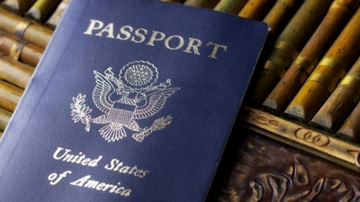A world in flux?
Analysis and prospects for the U.S. in global security
US Foreign Policy Research Group and Strife first annual conference
March 4, 2015 at King’s College London
The world is in an increasing state of flux. Growing concerns over the rise of the Islamic State and international tensions over Ukraine have compounded with ongoing dilemmas over North Korea’s nuclear program and international terrorism more broadly. Wikileaks has demonstrated gaps in state’s information security, while the growing problem of foreign fighters has showed how global events are linked increasingly with domestic concerns. The tools engaged to manage security are changing, as are partnerships and allies. The concept of security has also widened and deepened over recent decades, expanding from security between states, to areas such as individual and environmental security. At the forefront of these challenges, the United States has remained the hegemon, but how has this position changed and what role will it play in the future?
This one-day conference will bring together a diverse range of practitioners and academics who will critically analyze the shifting state of security and investigate the diverse ways in which the United States, as the continuing dominant force in global affairs has responded, and continues to respond to, these challenges.
The first annual joint United States Foreign Policy Research Group and Strife conference will survey the expansive terrain of global insecurity and the US response across its many diverse aspects. Held in the renowned Department of War Studies, at King’s College London, this conference is interested in theoretical explorations and empirical case studies, with particular emphasis on new approaches and cross-disciplinary dialogue. A selection of excellent papers will be included in a special spring edition of Strife Journal.
Attendance at the conference will be free and open to all.
Conference Program
Location: Pyramid Room, K4U.04, King’s Building, Strand. London, UK. WC2R 2LS
Programme
08.30 – 09.00 Registration
09.00 – 09.15 Welcome and Introduction: Eugenio Lilli, Chair, US Foreign Policy Research Group
09.15 – 10.15 Guest speaker: Professor Inderjeet Parmar, City University London.
Professor Inderjeet Parmar is currently serving as President of the British International Studies Association (BISA). He has authored seven book on US policy including him most recent, “Barack Obama and the Myth of a Post-racial America” (2013) and “Foundations of the American Century” (2012)
10.15 – 11.15 Panel 1: Time-honored relationships in a world in flux
Chair: Reinoud Leenders, Reader in International Relations and Middle East Studies, King’s College London
Oliver Steward, University of East Anglia, UK: Contingency as the ‘Missing Link': A new approach to understanding ‘change’ in U.S. foreign and security strategy in the 21st century.
Ben Sollenberger, Fulbright fellow (Turkey) Emory University, Turkey: False Foes and Fruitful Friction - US-Turkish Relations.
Rob Pinfold, King’s College London, UK, It’s the ‘Special Relationship’, stupid: Explaining Israeli withdrawals from territory through the prism of Israel-US relations,
11.15 – 11.25 Coffee Break
11.25 – 12.25 Panel 2: Counterinsurgency and counterterrorism in the 21st century
Chair: Mr. Christopher Kolenda, Senior Military Fellow, King’s College London
Zuhra Bahman, University College London, UK: Security Sector Policy in Afghanistan Killing the Talking Insurgents.
Jorge Delgado, King’s College London, UK: The US and “Small footprint” COIN in Colombia - A model for future intervention?
Sartaj Khan, Editor monthly ‘Socialist’ Urdu Magazine, Pakistan: Responding to Taliban’s Terrorism: A Strategic Analysis of the Campaign to Courting Pashtun Mashran in Pakistan.
12.25 – 13.25 Lunch break
13.25 – 13.40 Greetings from the Head of the Department: Professor Theo Farrell
13.40 – 14.40 Panel 3: Assessing the US pivot to Asia
Chair: Dr. Alessio Patalano, Lecturer at King’s College London
XIongxiong Zhang, Durham University, UK: “Thucydides Trap” or New Model of Great Power Relationship: The Rise of China and the Changing American Security Strategy Towards China.
Ramesh Balakrishnan, King’s College London, UK: Unipolarity and the U.S. Pivot to East Asia: Examining the U.S. military build-up and its impact on regional stability.
Zeno Leoni, King’s College London, UK: Capitalist Development, China’s Rise and US State Managers: Explaining “Pivot to Asia” with Marxists Lenses.
14.40 – 14.55 Coffee break
14.55 – 15.55 Panel 4: Adaptive tools in foreign policy
Chair: Dr. Jack McDonald, Research Associate and Teaching Fellow, King’s College London
Andris Banka, University of Birmingham, UK: American drone strikes and the norm against assassination.
Andrzej Kozłowski, University of Lodz, UK: The United States security policy in cyberspace after Snowden.
Duraid Jalili, King’s College London, UK: Professional Military Education (PME) as an Hegemonic Tool in U.S. International Security Policy.
Emma Scott, Security Analyst for Business Monitor International, UK: The suitability of U.S. military assistance to Iraq post Mosul 2014.
15.55 – 16.10 Closing remarks
Joana Cook, Editor-in-Chief Strife

